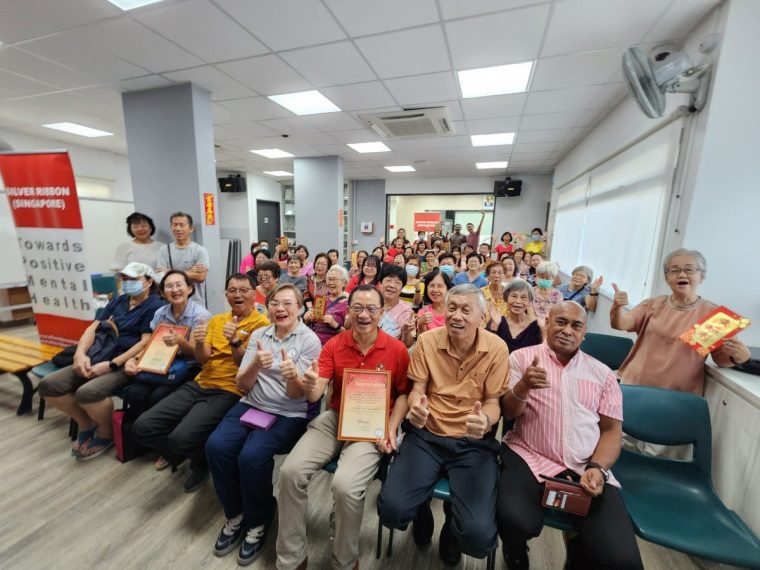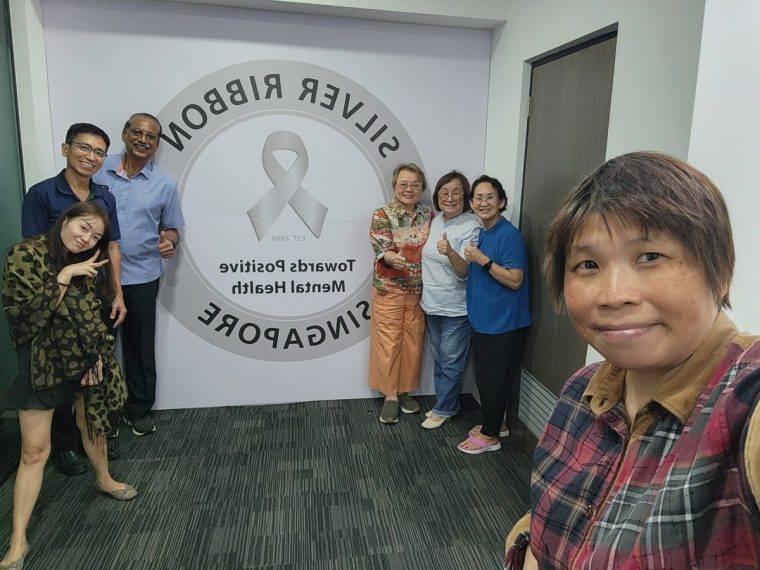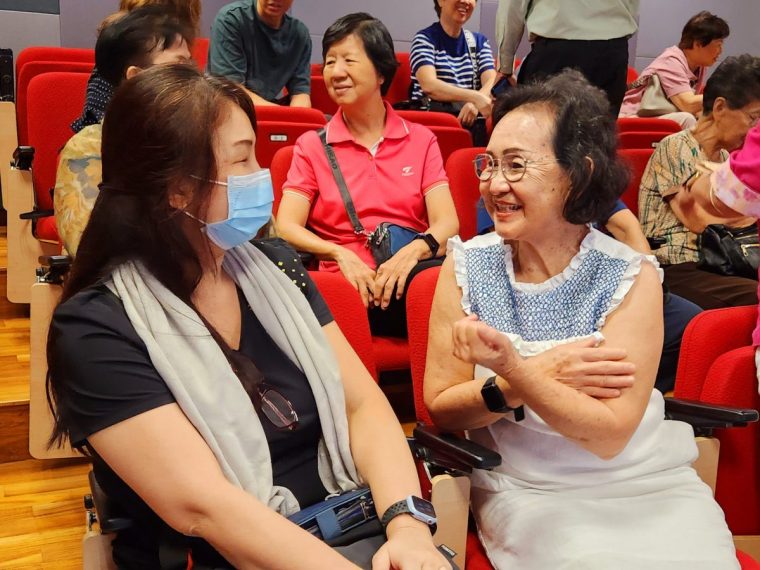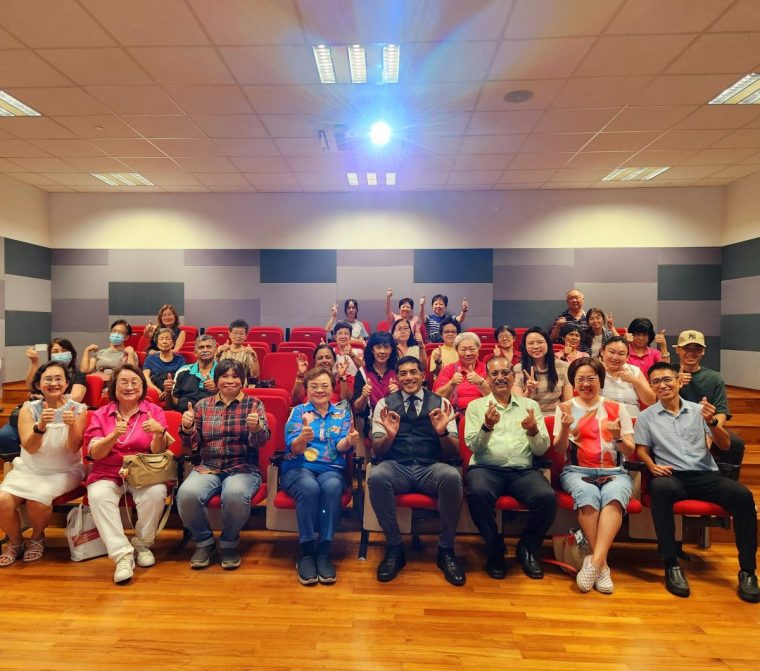Plunging youth mental health is a concern worldwide – but Singapore is hoping that training up family members to engage with children can make all the difference
Ellen Lee vividly remembers the man who lived opposite her house growing up in Singapore.
“Most days he would be okay, but then some days he would run around screaming and shouting holding a chopper [knife],” she says.
Ms Lee now understands that the man had a mental health condition, but at the time, aged 11, she was perplexed by his behaviour. She became preoccupied with the question: how could he be helped?
Today, as a younger generation goes through its own mental health crisis the 68-year-old is at the heart of a novel scheme to support them.
The small ultra developed tropical island of Singapore is the economic centre of southeast Asia, with the highest income per capita in the region. It consistently rates highly on scores for quality of life.

But the city state’s economic success hides a darker problem.
Suicide was the leading cause of death for young people in Singapore for the past five consecutive years, according to Samaritans of Singapore. Nearly one in three young people aged 15-35 in Singapore reported experiencing severe or extremely severe symptoms of depression, anxiety or stress, according to a report by the state’s Institute of Mental Health last year.
The overall suicide rate was 5.91 per 100,000 Singaporean residents in 2024. That is actually lower than the UK (at 9.5 per 100,000 in 2024) and US (at 14.9 per 100,000 in 2023). But it’s the rise in the proportion of young people dying by suicide in Singapore that is the major concern for the authorities.
“The biggest rise comes from youth,” says Alina Rodriguez, professor of psychological medicine at National University of Singapore.

But just as in the UK, there is a lack of mental health professionals available to provide support, which can mean long wait times for access to services. “We’re talking about young people, adolescents, and a few months matters,” she adds.
Porsche Poh, executive director of mental health charity Silver Ribbon, was also determined to do something about Singapore’s escalating youth mental health problem and has come up with a solution: grandparents.
She had found that many parents’ approach to mental health support was: “Over my dead body I’m going to send my children to seek for help.”
Time was another barrier. Singapore’s working culture can be tough: it has one of the world’s longest working weeks, at an average of 43.3 hours, compared with 36.5 hours in the UK and just 34 hours in Germany.

So the grandparents who were looking after children while their parents were busy at work were, Ms Poh, 68, thought, a way to “build a bridge” between the young people and mental health institutions.
Last year she started a programme which aims to equip grandparents with basic mental health knowledge, to help them spot warning signs of common mental disorders, and to teach them to support their grandchildren. And Ms Lee, now a grandmother of 10, has been drafting the course content.
She says the help was definitely needed. “We have grandparents saying there is a generational gap between them and their grandchildren. They no longer speak the same language,” Ms Lee, a former Singaporean MP explains. “They don’t have anything in common to talk about, there’s no conversation.”
The Sage programme, which is free, includes coaching on how to speak to grandchildren with emotional difficulties and helps grandparents them understand the pressures that young people might be facing.

Youth mental health has become is an issue of concern worldwide, with social media seen as a major cause of the problem. But Singapore also has its own particular academic pressures.
Ms Lee says education and the need to get good grades has increased the burden on young people, as has the fact that many parents in Singapore pay for after school private tuition for their children.
“The whole day is spent doing nothing but school,” she says. “After that go to a tuition centre, and then, when you go home, eat, and then before you sleep, you have to do your homework too.”
These pressures, combined with stigma around mental health issues, can be a toxic mix. “Nobody is comfortable to talk about it [mental health],” says Ms Poh.
Some communities in Singapore may perceive mental health issues as signs of “evil possession” rather than a medical condition, she adds. They often seek spiritual or religious help rather than formal treatment.
Some services also require parental permission to access, which can dissuade children from seeking help independently.
Ms Poh’s programme has helped challenge those ideas and help create a stronger bond between generations. Ms Lee says it has changed her perspective on how she communicates with her grandchildren.
She is now more inquisitive, asking her grandchildren about things that she doesn’t understand about their lives, which has helped strengthen their relationship.
“It must have occurred to them that I’m not that smart at all!” Ms Lee says. “I tell other grandparents: just ask, check what they’re talking about. The grandchildren will respect them for wanting to find out more, for having that care and concern.”
She adds: “I have to forget that I am a grandmother, I should be more of a friend. I should be more accommodating and not insisting on compliance with rules… I try and pick up their lingo! Even at my age, I’m learning new things.”
